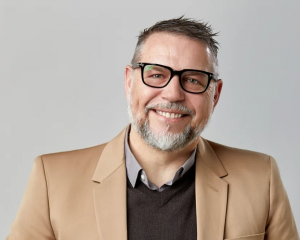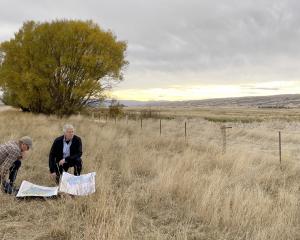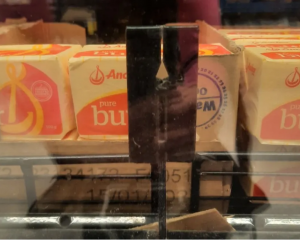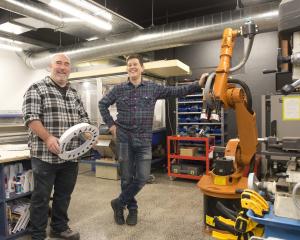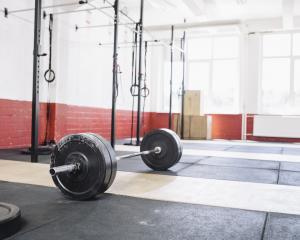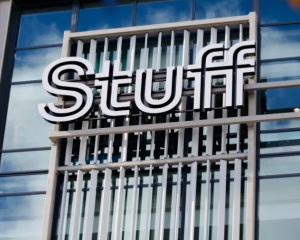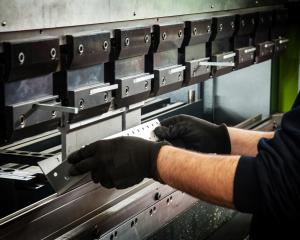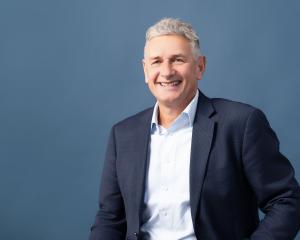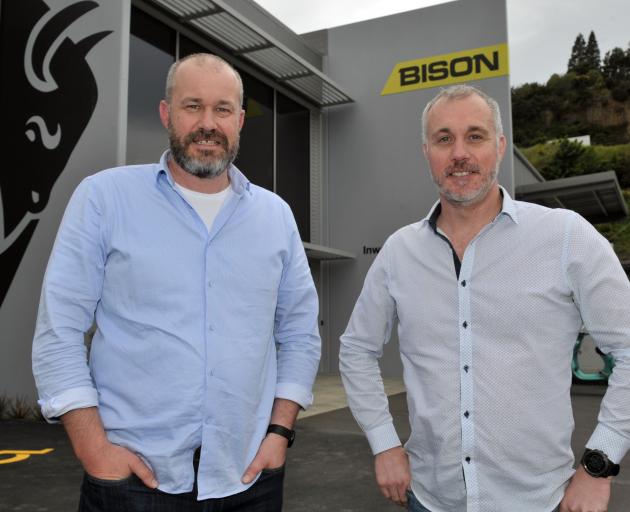
Now the founders of Bison Group are in a new building in Kaikorai Valley Rd, having bounced back from the Alert Level 4 lockdown better than many other businesses. They started the year with 13 staff and are finishing it with 23.
"It’s quite a tangible milestone of our progress," Greg Fahey said of the move.
"It’s been a bit like moving house. It’s pretty disruptive. You throw everything where you think it’s supposed to be and it takes time to sort of settle in and find a home for everything."
The new building had appealed to the Faheys after the company outgrew its previous home at the old Emerson’s factory in Wickliffe St.
The blank canvas at a new site meant Bison would be able to set the site up for future manufacturing and a flow of product through the workshop, Greg added.
Bison develops, manufactures and sells systems — mainly jacks — for lifting and weighing shipping containers.
"There’s nothing really like it in the market globally. So we’ve found a niche we’re now pursuing [and] expanding," Greg said.
"We’ve come from a very small start-up with three blokes working out of a shipping container to what you see now."
Bison’s niche was the ability to offer the container logistics service to smaller operators that needed to move containers.
The alternative options were big container machines typically seen at ports that were much more expensive than what Bison could charge.
"They’re perfectly suited to a port or a big operation, but a small manufacturer or shipper or a site with a limited number of containers may not want to invest as much or may not have the space."
Bison had sold products in 60 countries and its customers were usually importers, exporters, militaries and people using containers for things such as power generation and energy storage.
The increase in staff had been driven by sales.
"We’ve been marketing and selling our equipment and growing the order book and so to meet that demand we’ve got to build our production capacity so we’ve hired about seven new production workers this year, production workers and managers."
The company wanted to keep driving sales growth next year, and was bringing in four new sales staff, including one person to work from Houston, in the United States.
The US was a large and accessible market, Greg said, and being there and in Europe where they already had a salesperson meant they covered three major time zones across the world. Greg said they had practised selling remotely before this year, and the new way of doing business under Covid-19 restrictions suited them.
"That’s played into our hands and we were quite well equipped when Covid hit, we just kept doing what we were doing. We were marketing and selling from our bedrooms and working together with our team spread out with good technology."
Recent logjams at ports and disruptions to supply chains were things he said Bison had to keep a close eye on, and carefully manage how they might affect deliveries to customers.
"We can’t be quite as definitive about when they’re going to get their equipment because of that disruption as well. That can sometimes make a sale a little harder."
Dr Mark Fahey said he was optimistic the world was passing the worst of the Covid-19 era and business was getting back to the "old normal".
He was hopeful supply chains would become less congested next year.
"2021 for us, we’re just continuing to improve and grow and strengthen the business on all fronts," he said.

